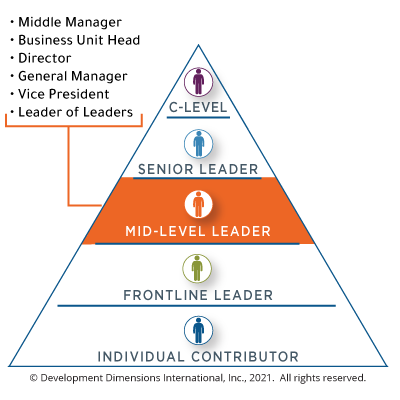Middle Managers: Their Value To Companies And Their Staff

Table of Contents
The Bridge Between Leadership and Employees: Enhancing Communication & Collaboration
Middle managers act as the vital bridge between senior leadership and their teams, ensuring effective communication and collaboration. They translate complex strategic goals into actionable tasks, preventing information silos and fostering a clear understanding of company objectives across all levels. This two-way communication flow is critical for avoiding misunderstandings, improving efficiency, and boosting overall productivity.
- Improved communication reduces misunderstandings and improves efficiency: Clear, consistent communication from Middle Managers prevents confusion and ensures everyone is working towards the same goals.
- Effective task delegation optimizes workflow and productivity: Middle Managers expertly delegate tasks, matching individual skills to project requirements, maximizing efficiency and minimizing bottlenecks.
- Strong team cohesion leads to higher morale and increased output: Middle Managers cultivate a positive team environment, fostering collaboration and boosting morale, which directly impacts productivity.
- Examples of successful communication and collaboration strategies implemented by middle managers: Regular team meetings, transparent project updates, open-door policies, and the utilization of collaborative project management tools.
Driving Performance and Productivity: Motivating Teams and Achieving Goals
Middle Managers are crucial in driving performance and productivity. They motivate and mentor their teams, creating a positive work environment that encourages growth and achievement. Their role extends to performance management, providing constructive feedback, identifying areas for improvement, and celebrating successes. This focus on individual development and team performance directly contributes to the overall success of the organization.
- Strategies for effective performance reviews and feedback delivery: Regular one-on-one meetings, constructive criticism focused on specific behaviors and results, and utilizing performance management software.
- Methods for boosting employee morale and engagement: Recognizing achievements, fostering a sense of team accomplishment, providing opportunities for professional development, and promoting work-life balance.
- Examples of successful performance improvement initiatives led by middle managers: Implementing new training programs, streamlining workflows, and introducing performance incentives.
- The impact of strong middle management on overall company productivity: Improved employee engagement, reduced employee turnover, and increased efficiency all contribute to higher overall productivity.
Identifying and Developing Talent: Investing in Future Leaders
Middle Managers play a crucial role in talent management. They are often the first to identify high-potential employees, providing mentorship and guidance to nurture their skills and accelerate their growth. Their involvement in training and development programs ensures employees possess the skills necessary for advancement, contributing significantly to talent retention within the organization.
- Techniques for identifying promising employees: Observing performance, seeking employee feedback, identifying leadership potential, and assessing willingness to learn and adapt.
- Effective mentorship and coaching strategies for talent development: Providing regular feedback, setting challenging goals, and offering opportunities for professional growth.
- The link between effective talent management and organizational success: A strong talent pipeline ensures a skilled and engaged workforce, leading to increased innovation and improved performance.
- Examples of successful talent development programs implemented by middle managers: Mentorship programs, leadership training workshops, and opportunities for cross-departmental projects.
Championing Innovation and Adaptability: Responding to Change Effectively
Middle Managers are often the first to experience the impact of organizational change. They are key in communicating new strategies, fostering a culture of innovation, and leading their teams through transitions. Their ability to adapt and respond effectively to changing circumstances is critical for organizational resilience and success in today's dynamic business environment.
- Methods for effectively communicating organizational changes: Transparent communication, addressing employee concerns, providing clear explanations of the reasons for change, and offering support during the transition.
- Strategies for fostering a culture of innovation and creativity: Encouraging experimentation, providing resources for innovation, recognizing and rewarding creative ideas, and promoting a growth mindset.
- Examples of middle managers successfully adapting to and leading through change: Successfully implementing new technologies, adapting to changing market conditions, and leading teams through restructuring.
- The importance of adaptability in today's dynamic business environment: The ability to respond effectively to change is crucial for remaining competitive and achieving sustained success.
The Invaluable Contribution of Middle Managers: A Necessary Investment
In conclusion, strong Middle Management is not just beneficial—it's absolutely essential for organizational success. Middle Managers are the driving force behind improved communication, enhanced productivity, talent development, and successful adaptation to change. Investing in your Middle Management team through targeted training programs, leadership development initiatives, and robust recognition programs is an investment in your company's future. Invest in your Middle Management team today to unlock your company's full potential! Don't undervalue the power of your Mid-Level Managers; empower them, and watch your organization thrive.

Featured Posts
-
 Selling Sunset Star Highlights Landlord Price Gouging Following La Fires
Apr 24, 2025
Selling Sunset Star Highlights Landlord Price Gouging Following La Fires
Apr 24, 2025 -
 Usd Rally Dollars Surge Linked To Trumps Moderated Criticism Of Fed Policy
Apr 24, 2025
Usd Rally Dollars Surge Linked To Trumps Moderated Criticism Of Fed Policy
Apr 24, 2025 -
 Open Ais 2024 Developer Event Easier Voice Assistant Creation
Apr 24, 2025
Open Ais 2024 Developer Event Easier Voice Assistant Creation
Apr 24, 2025 -
 Tensions Rise South Carolina Constituent Challenges Rep Nancy Mace
Apr 24, 2025
Tensions Rise South Carolina Constituent Challenges Rep Nancy Mace
Apr 24, 2025 -
 John Travoltas Miami Steak Dinner A Pulp Fiction Tribute Video
Apr 24, 2025
John Travoltas Miami Steak Dinner A Pulp Fiction Tribute Video
Apr 24, 2025
